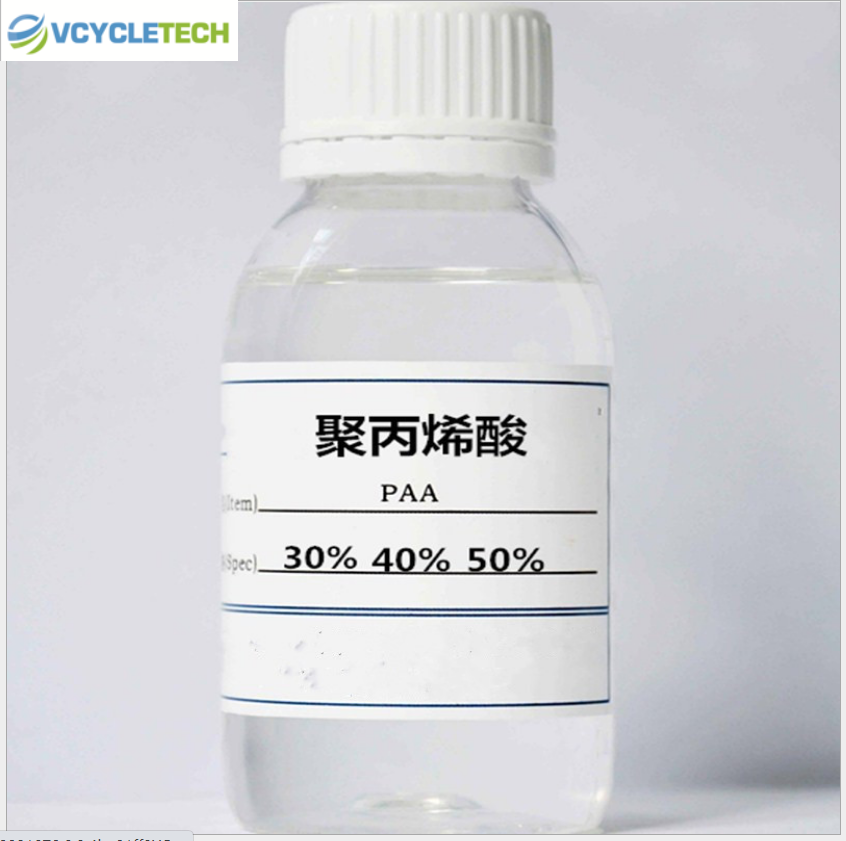In reverse osmosis and nanofiltration systems, many chemicals are used as scale inhibitors and dispersants to improve the operation of reverse osmosis and nanofiltration systems. Scale inhibitors are chemicals that inhibit the formation and precipitation of crystalline mineral salts. Most scale inhibitors are proprietary organic artificial polymers (e.g., polyacrylic acid, carboxylic acid, polymaleic acid, organophosphates, polyphosphates, phosphates, anionic polymers, etc.). The molecular weight of these polymers ranges from 2000 to 10,000 Da.
The scale inhibition technology for reverse osmosis systems was originally derived from the chemicals used in cooling water and boiler water. It should be noted that the evolution of the chemical composition of a large number of different inverse standardizers has produced different effects and efficacies, depending on the application and the organic polymer used. However, they must be used with care.
(i)
Polyacrylic acid scale inhibitors. If the iron content is high, they readily form fouling and deposits on the membrane surface. This fouling increases the feed pressure requirements but can usually be cleaned with a low pH.
(ii)
Scale inhibitors are anionic in nature (e.g., polyacrylic acid). When cationic coagulants or filter aids are used in the pretreatment process, they can create sticky fouling that increases feed pressure and is difficult to remove.
In the early days of RO, a popular anti-scalar was sodium hexametaphosphate, but its use has been greatly reduced with the advent of proprietary anti-scalars due to several limitations.
The most common mineral scalars are:
(i)
Calcium Carbonate (CaCO3)
(ii)
Calcium Sulfate (CaSO4)
(iii)
Strontium sulfate(SrSO4)
(iv)
Barium sulfate(BaSO4)
Less common mineral scales are:
(i)
Calcium phosphate [Ca3(PO4)2]
(ii)
Calcium Fluoride (CaF2)
Dispersants are a series of organic, artificial polymers designed to inhibit aggregation and contaminant deposition on membrane surfaces. Dispersants are sometimes referred to as antifouling agents. Contaminants tend to be a softer, amorphous deposit. Dispersants tend to have scale inhibition properties. Different dispersants have different effects on different contaminants, so one needs to know what contaminants they are treating them with.
Dispersants treat the following fouling:
(i)
Mineral Scales
(ii)
Metal Oxide
(iii)
Hydroxides (iron, manganese, aluminum), polymeric silica, colloidal materials (defined as tiny particles, in infinite suspension, can be made of clay, iron, aluminum, silicon, sulfur, and/or organic matter)
(iv)
Biomass
It is important to maintain the proper amount of scale inhibitor/dispersant. Insufficient dosage can lead to scaling or fouling. Excessive use can lead to scale inhibitor/dispersant deposits on the film, causing contamination problems.

What is RO Antiscalant chemical?
Vcycletech offers a full line of reverse osmosis agents, including reverse osmosis agents, designed to treat slime and other undesirable phenomena caused by organic and inorganic materials in water.
With over 20 years of experience in the water treatment industry, Vcycletech has perfected the use of high-quality anti-fouling agents that will effectively protect your membranes from fouling over time. An antifouling agent needs to be added to the reverse osmosis membrane to dissolve fouling-causing minerals such as calcium carbonate and sulfate deposits before it enters the membrane.
As a global supplier of reverse osmosis chemicals, Vcycletech has over 20 years of experience, reducing scale deposits' adhesion to water treatment membranes. Once these membranes are completely cleaned of all harmful contaminants through the use of these chemicals, their performance will be greatly improved in your reverse osmosis system.
Reverse osmosis chemicals can greatly reduce deposits, impurities, and scale in system membranes. Scale inhibitors, antifoulants, and RO powder cleaners are chemicals specifically designed to prevent these contaminants from adhering to the membrane surface.
vcycletech offers a full line of reverse osmosis chemicals that are specifically designed to help keep your membrane system clean and free of contaminants. We can also offer PTP0100 RO Chemicals.
Without using RO chemicals, large amounts of suspended solid deposits in the feed water will stick to the membrane surface and cannot be filtered by the reverse osmosis membrane. Reverse osmosis systems work by forcing water through the membrane and filtering out suspended solids from the source water. To maintain these reverse osmosis systems' effectiveness, reverse osmosis chemicals must be used to make the surface smoother and not allow mineral deposits to accumulate and clog the membrane surface.
Using the incorrect reverse osmosis scale inhibitor increases the risk of membrane fouling and reduces the return on reverse osmosis performance. Fortunately, with the right dosing rate and the right reverse osmosis scale inhibitor, it is possible to prevent fouling problems over time effectively. There are computerized dosing software programs that can predict the likelihood of fouling and help provide a detailed understanding of the severity of membrane fouling and provide ideal recommendations for scale inhibitor dosing rates.
Reverse osmosis scale inhibitors typically require meager dose rates and can work in conjunction with other upstream chemicals. Reverse osmosis scale inhibitors are also easy to use and safe to operate, meeting all environmental safety prerequisites for reverse osmosis chemicals used in water treatment plants. Reverse Osmosis Scale Inhibitors are special chemical supplements that eliminate membrane contamination and minimize reverse osmosis systems' contamination rate.
RO Antiscalants. Key Benefits Economical
·Maintains membrane efficiency
·Eliminate fouling of the membrane
·Effectively regulates corrosion
·Simple to operate and manage
·Increased durability of operations and equipment
·The high permeate recovery rate
·The low chemical dose required
·Reduce the amount of membrane cleaning
·Effectively controls silicon and iron fouling.
·Naturally organic and suitable for all membranes.
·Surface Water Treatment